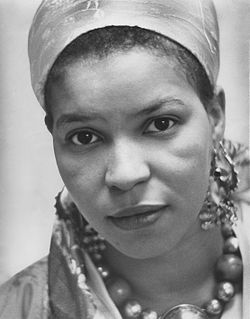A Quote by Anne Ursu
Fiercely original and uncommonly lovely, The Witch's Boy is equal parts enchanting and haunting. Kelly Barnhill is master of truly potent and unruly magic; luckily for readers, she chooses to use her powers for good.
Related Quotes
The new female is competent in all that she chooses. She chooses whatever her heart tells her. She can create a business, lead a country, drive a truck, hammer nails, deliver mail, or raise a family. She is at home in every social and physical environment. She can be a housewife, if she chooses. She can be anything else, too. She is intuitive and heart centered. She is all that a female has been, and more.
I knew she was a party girl. The book I liked most on her was called [princess] Margaret: A Life of Contrasts and getting to know her, it was how conflicted her position and her internal life - or self - was. She is so fiercely royal and so fiercely "sister of the queen" or "daughter of the king" because that is her identity and it's all she's ever known. And at the same time she is struggling to push the boundaries and to break away from it, to be different or to modernize the monarchy, to turn it on its head.
She was sitting cross-legged on her bed in her white kimono, writing in a notebook with an ink pen she dipped in a bottle. 'Never let a man stay the night,' she told me. 'Dawn has a way of casting a pall on any night magic.' The night magic sounded lovely. Someday I would have lovers and write a poem after.
Few countries have produced such arrogance and snobbishness as America. Particularly is this true of the American woman of the middle class. She not only considers herself the equal of man, but his superior, especially in her purity, goodness, and morality. Small wonder that the American suffragist claims for her vote the most miraculous powers. In her exalted conceit she does not see how truly enslaved she is, not so much by man, as by her own silly notions and traditions. Suffrage can not ameliorate that sad fact; it can only accentuate it, as indeed it does.
Morally a woman has a right to the free and entire development of every faculty which God has given her to be improved and used to His honor. Socially she has a right to the protection of equal laws; the right to labor with her hands the thing that is good; to select the kind of labor which is in harmony with her condition and her powers; to exist, if need be, by her labor, or to profit others by it if she choose. These are her rights, not more nor less than the rights of the man.
The Master has no mind of her own. She works with the mind of the people. She is good to people who are good. She is also good to people who aren't good. This is true goodness. She trusts people who are trustworthy. She also trusts people who aren't trustworthy. This is true trust. The Master's mind is like space. People don't understand her. They look to her and wait. She treats them like her own children.
Not that she didn't love almost every boy she'd ever met, and not that every boy in the world didn't totally love her. It was impossible not to. But she wanted someone to love her and shower her with attention the way only a boy who was completely in love with her could. The rare sort of love. True love. The kind of love she'd never had.
It means that though the Witch knew the Deep Magic, there is a magic deeper still that she did not know. Her knowledge goes back only to the dawn of Time. But if she could have looked a little further back, into the stillness and darkness before Time began, she would have read there a different incantation. She would have known that when a willing victim who had committed no treachery was killed in a traitor's stead, the Table would crack and death itself would work backwards.
And an unaware witch means a witch who doesn't know she's a witch, and because she's a women that makes her double trouble. Never trust a women." My mothers a women," I said, suddenly feeling a little angry, "and I trust her." Mothers are usually women," said the Spook. "And mothers are usually quite trustworthy, as long as your their son. Otherwise look out!
I fell for her in summer, my lovely summer girl, From summer she is made, my lovely summer girl, I’d love to spend a winter with my lovely summer girl, But I’m never warm enough for my lovely summer girl, It’s summer when she smiles, I’m laughing like a child, It’s the summer of our lives; we’ll contain it for a while She holds the heat, the breeze of summer in the circle of her hand I’d be happy with this summer if it’s all we ever had.
And of the Witch? In the life of a Witch, there is no "after", in the "ever after" of a Witch there is no "happily"; in the story of a Witch, there is no afterword. Of that part that is beyond the life story, beyond the story of the life, there is-alas, or perhaps thank mercy-no telling. She was dead, dead, and gone, and all that was left of her was the carapace of her reputation for malice.







































